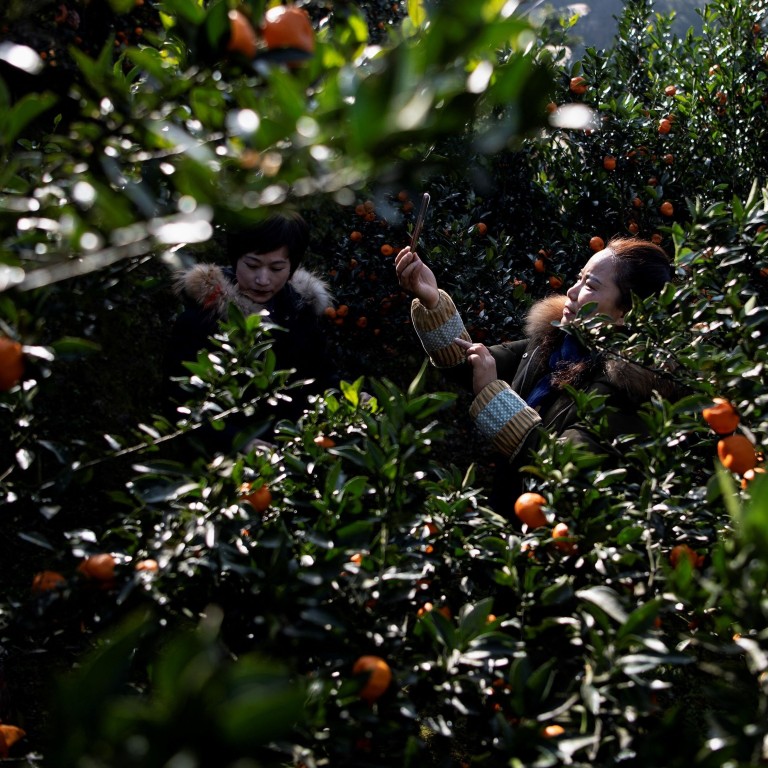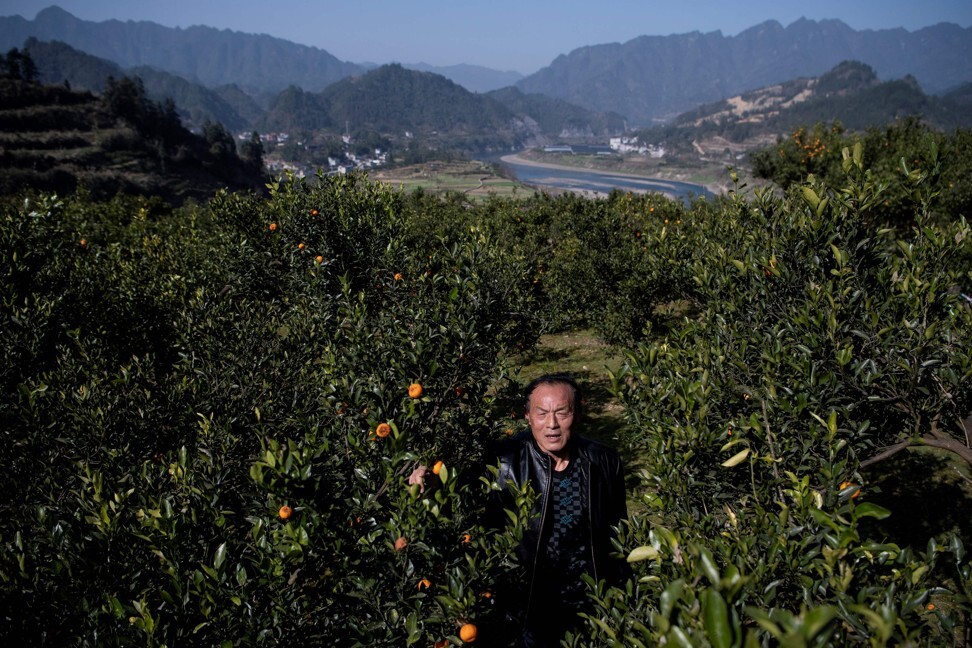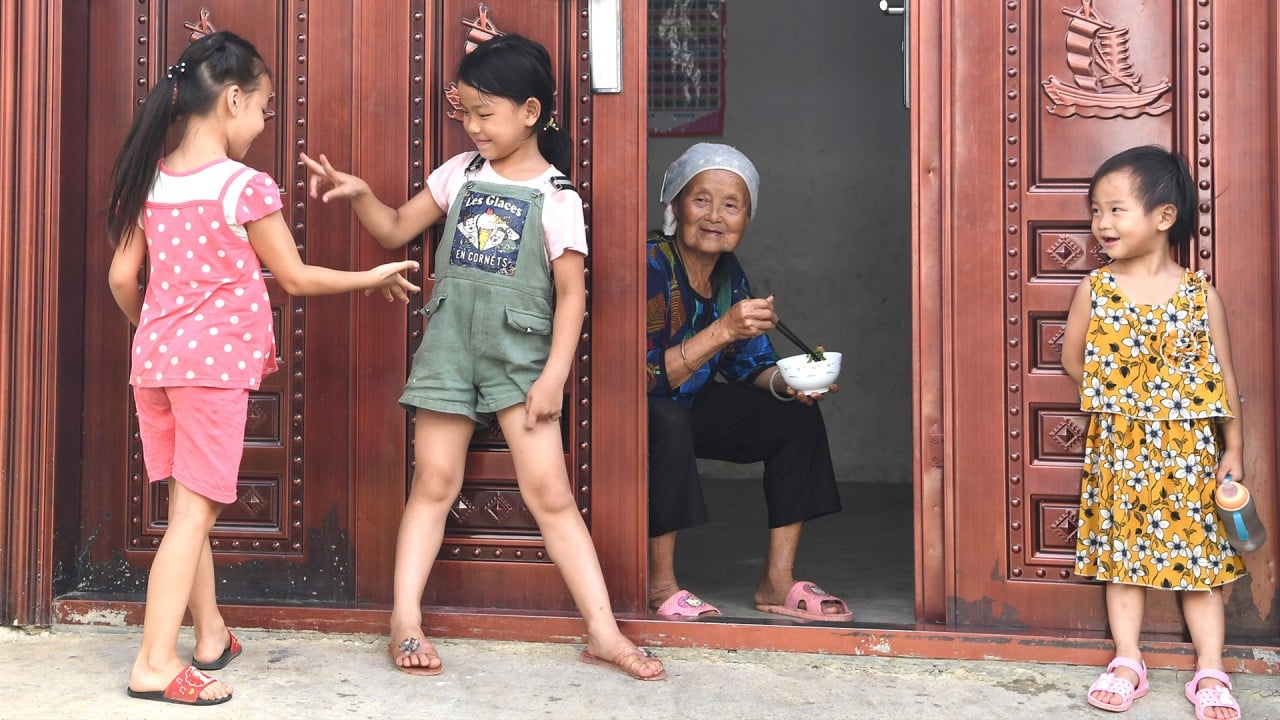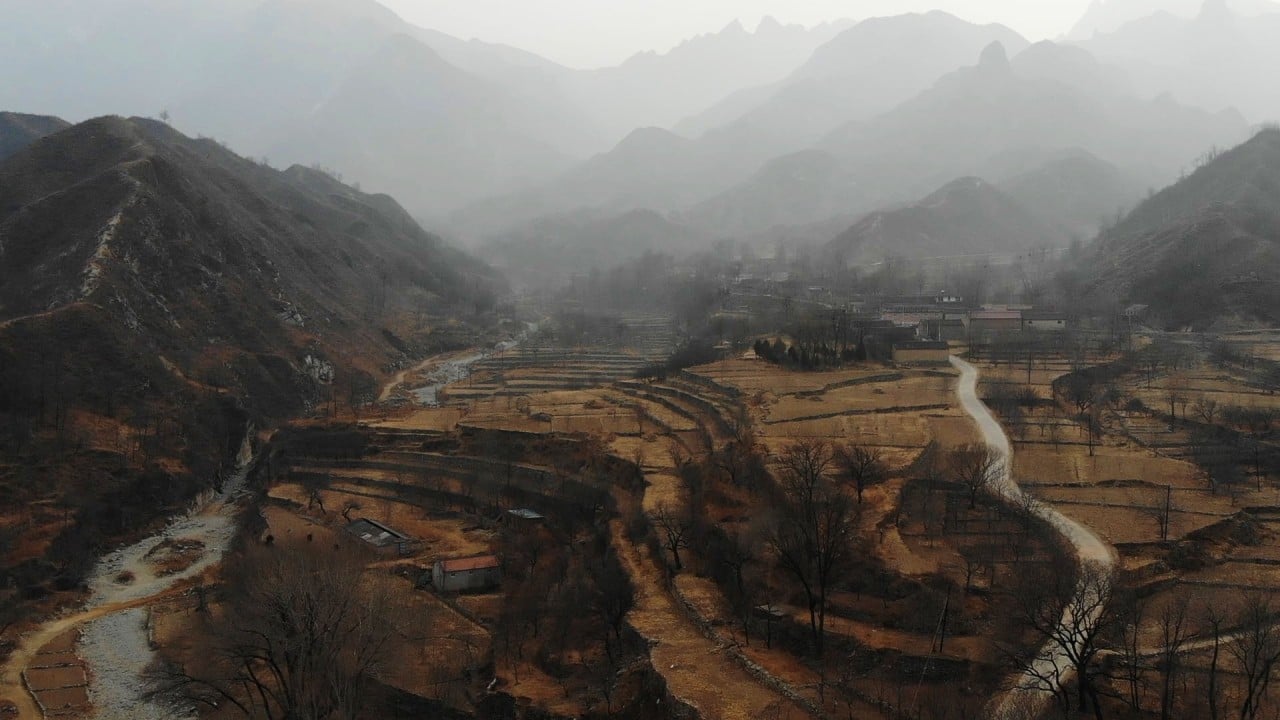
China poverty: Xi Jinping’s war drives some to riches, but leaves others behind
- President Xi Jinping declared victory in China’s decades-long war on extreme poverty last year, having improved the lives of hundreds of millions of people
- But experts say rising incomes have made China’s poverty line outdated, while the complex criteria to determine who gets aid has also fuelled unhappiness
At his village along a “poverty alleviation road” in Hunan province, farmer Liu Qingyou shares a booklet detailing how Xi Jinping’s government has hoisted him and 100 million other Chinese from the breadline.
In it, the cause of his family’s hardship is diagnosed as “illness” and “schooling”, followed by a list of ways the state has helped, from grain subsidies to improving the yield of their orange groves.
For Liu, the following years brought another boost: a new road cutting through Hunan’s mountainous countryside, helping transport produce to market twice as quickly and giving valuable links to nearby towns.

But it has not been a smooth journey up China’s economic ladder.
Liu says his harvests have not improved despite efforts by local authorities to help him diversify his crop. Meanwhile, his wooden house does little to keep out temperatures that plunge close to zero in the winter.
From his vantage point, Liu and his family of five still live modestly, and he worries for their future – despite being counted as lifted from poverty.
“We can get by,” he said. “But our house is bad.”
He wants what some others have received from the state: resettlement or enough funds to build a brick home. The reasons he did not qualify are unclear to him.
“Why can’t we have the same?” he asked.

02:47
China looks to boost its middle class as it wraps up Xi Jinping’s anti-poverty drive
China’s decades-long war on want has yielded remarkable results.
“Over the past 40 years, China’s economic growth has resulted in more than 800 million Chinese escaping extreme poverty … This is an extraordinary achievement,” said Martin Raiser, the World Bank’s country director for China.
In 2015, Xi vowed to eradicate extreme poverty by 2020, a pillar of the Communist Party’s goal to build a “moderately prosperous society” by the 100th anniversary of its founding later this year.
But reality on the ground is patchier, with experts warning that rising incomes have made China’s poverty line outdated. Complex criteria to determine who gets aid has also fuelled unhappiness.
The current low, unidimensional, rural poverty line no longer reflects what it means to be poor in China’s rapidly evolving society
Liu’s family was officially lifted from poverty around four years after being designated – the product of a policy shift by Beijing away from relying on the breakneck growth that pulled nearly a billion people out of penury.
Authorities set a poverty line based on income of around US$2.30 a day and offered targeted help to those under the line.
But China is now an upper-middle income country, for which the World Bank suggests a benchmark that doubles the current threshold.
“The current low, unidimensional, rural poverty line no longer reflects what it means to be poor in China’s rapidly evolving society,” said Terry Sicular of the University of Western Ontario.
Contacting villagers remains sensitive, with six cars of officials showing up unexpectedly during AFP’s Hunan visit.
Authorities asked about AFP’s interview plans and insisted on accompanying reporters around after acquiring details like travel history for Covid-19 prevention.
A police officer showed up at another interview, staying to observe for “sensitive” issues.
The Communist Party has based its legitimacy on delivering continued growth.
Ahead of the 2020 deadline, party cadres sprang into action: identifying poor households, distributing funds, and building infrastructure like the Qianqing road by Liu’s house.
But behind the poverty drive is at least US$1 trillion in loans over five years, and a burden of cost falling increasingly to local governments.
In Hunan, lack of local funds initially crippled progress of the winding, 63km road – finally completed after state broadcaster reports piled pressure on authorities.
“Transport became more convenient … this has increased the income of regular folk by at least 30 per cent,” Liu said.
But although Liu received a grant as a poverty-stricken household, he says business has been weak.
A low table sits in his sparsely-decorated house, by a stove where his son readies a lunch of cured bacon – a Hunan specialty.
A local government decision to diversify into tea plantations and plant new orange varieties hit earnings, he added.
“Before the trees were removed, our family could earn 20,000 to 30,000 yuan (US$4,639) a year,” said Liu. This has dropped to a fraction of the amount.

07:50
The Chinese villagers who fear they can never escape the poverty trap
There are plenty of signs of growing wealth, however. Per capita income of poverty-stricken households in Hunan grew from around 2,300 yuan to 12,200 yuan over five years, according to official figures.
The Qianqing road is a sign of the area’s increased wealth. Farmer Xiang Xiuli, 53, said villagers no longer had to carry produce across difficult terrain to the nearest roads for sales.
Her family said their orange business had doubled in size and their children were now able to attend better schools.
For farmer Mi Jiazhi, officially lifted from poverty in 2017, things have never been better.
“We have all sorts of resources,” said the 71-year-old. “Things are good now … I can have 30,000 to 40,000 yuan in income [annually],” he said.
With better income and help from his children, he will soon move into a newer, larger house. “I’m very happy,” he added.
Once alleviation policies are suspended, they are likely to return to poverty
But more work is needed to ensure the mass move up the economic chain is sustained. As the poverty line rises, many city dwellers will fall below it too, cautioned Raiser.
Beijing has already flagged the risk of backsliding, while villagers said Covid-19 also weighed on earnings.
Poverty alleviation official Ou Qingping warned in December that some people still reliant on aid had “insufficient” means to grow wealthier.
“Once alleviation policies are suspended, they are likely to return to poverty,” he said.
Setbacks like illness and unemployment – or pandemics – can also dunk households straight back into hardship.
“The elimination of poverty at a point in time does not eliminate poverty,” Sicular said.

.png?itok=arIb17P0)